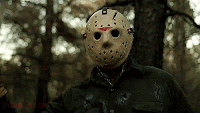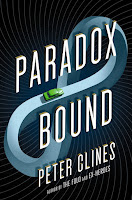Hey, everyone. Hope you’re all doing well after the brutal temporal shift out of Daylight Saving time. It can be pretty rough.
Speaking of being rough… I wanted to babble on for a couple moments about some rough types we’ve all probably run into at one point or another. And maybe even written about.
Lots of people—including fictional people—have dealt with bullies. They are, unfortunately, a constant across all ages, cultures, genders, sexualities, and industries. There’s a wonderful line in Paranorman–“If you were bigger and more stupid, you’d probably be a bully too.”
Bullies are kind of common in fiction for two reasons. The first, the easy one, is because it’s a type of person we can all relate to. We’ve all had to deal with that jerk at school, at work, online, or somewhere in our lives. And every now and then, sometimes inadvertently, sometimes not, maybe we’ve even been that person. It’s an archetype we all know.
The second reason is that bullies make a great low level antagonist for my protagonist to deal with. They can drive a subplot or even just be a warm-up for the main plot. While investigating drug smugglers or human traffickers, it’s not unusual for Jack Reacher to run into an obnoxiously stubborn town sheriff who likes to throw his weight around. Countless villains have their lieutenants or top henchmen. Steve Rogers had an actual bully that followed him from civilian life to boot camp… where said bully got punched out by Agent Carter.
 And that’s kind of what I wanted to talk about. We all kind of giggle and maybe even cheer a bit when Peggy decks Hodge. It’s a nice moment, because Hodge is an ass and flat out misogynist.
And that’s kind of what I wanted to talk about. We all kind of giggle and maybe even cheer a bit when Peggy decks Hodge. It’s a nice moment, because Hodge is an ass and flat out misogynist. But what if it had gone a little differently…?
What if Peggy decked him, and then kicked him a few more times in the ribs while he was on the ground? Then maybe stomped on his hand to break some fingers. Hell, maybe she stomps on his head. Kicks him in the teeth. Breaks his nose or maybe the orbit around his eye.
This just became a very different scene, didn’t it? Hodge isn’t getting his just deserts, he’s suddenly become the victim in this scenario. He punched Steve in an alley, made some crass and sexist remarks… and so Carter mauls him, possibly leaving him crippled? Heck, does she even know he punched Steve at this point? She just put this guy in the hospital for being obnoxious to her.
What if she’d shot him? One round to the head, right between the eyes. He smirks and then he’s dead, his brains sprayed out behind him. Or maybe she goes big—grabs a riflefrom a nearby soldier and shreds Hodge’s chest with a dozen bullets. That’s an ugly way to go, isn’t it? Broken ribs, punctured organs, equal chance of bleeding out or drowning as your lungs fill up with your own blood…
We can all agree this is kind of an extreme response. Hodge is an asshat, absolutely, but he doesn’t deserve this level of punishment. Hell, if anything, we feel a twinge or two of sympathy for him.
I’ve talked about this effect a few times before. Something extreme happening to a character can help shape how we feel about them. If it’s extreme enough, it might even override how we felt about them before.
For example (flipping things again), what if Hodge was an utterly reprehensible person? Physically and emotionally abusive to men, women, children, and animals. Now what’s supposed to be horrible can suddenly becomes great because it’s happening to such a completely sadistic person.
Seriously, think about it? How often have you watched a scene of nightmarish violence in a movie and cheered—out loud or internally—because of who it’s happening to? This isn’t horror, it’s justice. This person deserves what’s happening to them, and we’re glad we get to read about it (or watch it).
I’ve talked about this before, too, in regards to killing people, because this is a really common mistake I see in low-end B-movies. As audience members (or readers), we don’t care when unlikable people die. In fact, if someone’s aggressivelyunlikable (sexist, misogynist, racist, alcoholic, hypocritical, deliberately ignorant)… we may even be kinda happy when they get killed off. No amount of patting the dog will change our view on this. And suddenly this death means something very different. It’s not building tension in the story—it’s releasing it.
I’ve talked about this before, too, in regards to killing people, because this is a really common mistake I see in low-end B-movies. As audience members (or readers), we don’t care when unlikable people die. In fact, if someone’s aggressivelyunlikable (sexist, misogynist, racist, alcoholic, hypocritical, deliberately ignorant)… we may even be kinda happy when they get killed off. No amount of patting the dog will change our view on this. And suddenly this death means something very different. It’s not building tension in the story—it’s releasing it.
There’s a careful balance that needs to be struck in these situations. My bully needs to have enough unsavory traits and moments to make them a good antagonist. But if they have too many, it’ll affect how that bad scene gets received by my readers. Likewise, if the bully isn’t that bad and catches the bad end of some truly horrific things, it’s going to make my readers empathize with them,
Y’see, Timmy, I need to be aware of what I’m trying to accomplish with moments like this. It can’t just be violence and/or death—there needs to be a greater purpose to it in my story. When Carter lashes out at Hodge, do I want the audience to be rooting for Hodge or for Carter? When Freddy Kruger murders another child, am I going for scares or for laughs? When Jason Bourne tortures someone for information, should I be cringing or cheering?
Because what I’m trying to achieve is going to depend on more than just that one moment.
There’s a bully in my new book, Paradox Bound. His name’s Zeke. He starts off as a childhood bully, ends up being an adult bully—a bad cop who abuses his position. Alas, it happens sometimes. We’ve all seen it, or at least heard of it. Zeke does a lot of bad things and… well… no spoilers in case you haven’t read it, but bad things end up happening to him.
This was a really tricky balance to achieve, though. Y’see, in an earlier draft, we actually see Zeke violently beat a woman. And my editor’s assistant pointed out this made it really hard for us to have any sympathy for Zeke. And because of this, when the bad things happened to him, what I’d hoped would be a very creepy, cringe-worthy moment actually became… well, more of a “serves him right” moment.
But Zeke needed to be a serious bully in order for other aspects of the story to work. More than just an annoyance, we needed to believe Zeke could potentially be—on some level—an actual threat. So there was a lot of back and forth as I tried (with some help from my editor and his assistant) to find a point where Zeke would be unlikable and dangerous… while still not coming across as so unlikable that we’d automatically cheer when something awful happened to him.
And we found that balance.
Find your own balance point. Make sure that when that character gets punched or tortured or killed, I’m feeling exactly what you want me to feel.
And not… something else
Next time…
Y’know, nobody’s left a comment here in a while. What should I talk about next time? Somebody offer a suggestion, just so I know I’m not ranting into the void.
Until then… go write.




0 replies on “The Bully Balance”
Brings to mind something I've been kind of struggling with in a story I'm currently working on. In the story, our Hero gets involved with a super-secret organization that's charged with keeping the world safe. It's not a bad-guy kind of organization, but it IS kinda shady and works in the shadows, mostly to keep its mission on the down-low and unimpaired. Sensible. But its mission is thwarted by a ANOTHER organization with a completely DIFFERENT objective which runs contrary to this group's goals. The thing is, though, when our Hero comes into contact with this new antagonist group, they aren't really Bad Guys, either. Their goal is actually rather noble and sensible, too. They're still the antagonists, but they're not some evil conglomerate, either. Which means walking a very fine line. And, to be honest, I'm kind of stumped as to how I can make that into good, relatable drama. I mean, what happens when your opponent isn't bad but still needs to be stopped? What kind of compromise, if any, can be reached? And if defeating them is necessary, does that make it a regrettable, Pyrrhic victory? It'd be interesting to see your thoughts on this kind of situation.
Subplots? I dunno. I'm outlining a story right now and I'm struggling with subplots. Tips? Advice? How many's too many? Whatever you feel like.
Hmmmmm… that might be fun. I've mentioned subplots here a few times, but I don't think I've ever done a full post on them.
Consider it on the list!
So, basically what if your antagonist isn't actually a villain? That could be interesting.
I'll add that to my list, definitely.
I live to serve, oh master.
Actually, I wanted to thank you because I'm more than 40,000 words into a fanfic I'm writing and it is much better than originally thought for many reasons. One of which is you. Merci!
I'm currently wrassling with ensuring that a character-driven story still possesses forward momentum. There's a theme, and I do know a couple of the major points that will come up at some stage, but if I am not careful I'm looking at twenty chapters of enjoyable-but-maybe-irrelevant wankery.
How do you keep character-driven stories on track? Is there even a track to follow?
could we revisit structure sometime? Turns out i can't structure for pish, which is an annoying thing to realise all of a sudden – i tend to run off in pursuit of a shiny idea and assume that a nice stable structure will somehow form by itself along the way.
Also, is it possible to insert a structure AFTER you've finished a first draft? if, for example, you get to the end of NaNoWriMo with 50k of rambling tangents, can you go back and shove a structure into it? As a lifelong pantser, this is what i always seem to do, but i'm beginning to suspect it's not as good a technique as i thought…